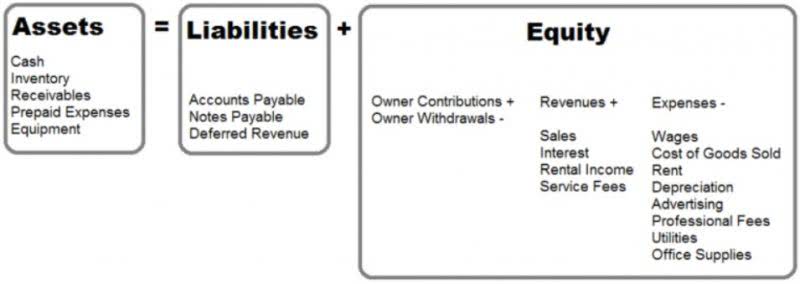
Lawyers must ensure that trust accounts are properly maintained, accurately recorded, and reconciled regularly. They are responsible for depositing client funds into the trust account promptly and disbursing them only for authorized purposes. Additionally, lawyers must keep detailed records of all transactions and be able to provide an account of the funds upon request by clients or regulatory authorities. By recognizing these common errors and implementing rigorous internal controls, law firms can significantly reduce the risk of trust accounting missteps.
Understanding Georgia’s Hands-Free Driving Law
- State bar associations typically require regular reconciliation of trust accounts, often on a monthly basis.
- An attorney should maintain control of authorizing transfers from trust accounts.
- As an attorney, your focus should be on your firm and most importantly, your clients.
- By being aware of these common trust accounting pitfalls and implementing preventive measures, law firms can maintain the highest standards of trust accounting and ensure compliance with ethical and legal obligations.
- The interest generated typically depends on the type of account and the institution holding the funds.
- A firm/proprietor should not use any settlement funds to pay outstanding firm/proprietor invoices until the client is billed.
- Lawyers may not deposit their money into a trust account, even temporarily, or use it for any other purpose than compensating the firm for services rendered, with proper record keeping.
Best of all, the process is automatic, eliminating the errors and oversights that can occur with manual trust accounting practices. Managing trust accounts manually without the help of legal accounting software and automation is one of the common mistakes law firms make. Automation helps avoid human error, keeps you compliant, and helps you identify issues and correct them before a problem arises.
- This process involves comparing the law firm’s accounting records against bank statements to ensure they match and that all client funds are accurately accounted for.
- A depleted retainer that catches a law firm by surprise can lead to a real hassle.
- Lawyers should establish robust internal controls and procedures for handling trust accounts, including segregation of client funds from the lawyer’s own funds, regular reconciliation of accounts, and detailed record-keeping.
- Trust accounting is a critical component of legal practice that requires diligence, accuracy, and adherence to ethical standards.
- One common misconception is that small or infrequent transactions involving client funds do not require strict adherence to trust account rules.
Improper trust disbursements.
Adhering to trust account rules is essential for maintaining the trust and confidence of clients. Clients rely on their lawyers to handle their funds with the utmost care and honesty. Any violation of trust account rules can lead to severe consequences, including disciplinary action, loss of license, and damage to the lawyer’s reputation. Therefore, it is imperative for lawyers to understand and comply with trust account rules to uphold the ethical standards of the legal profession and protect the interests of their clients.
Responsibilities of Lawyers in Managing Trust Accounts
For instance, when all the information is being entered into a single system, errors can be promptly discovered and reconciled. Moreover, a single system law firm chart of accounts [1] means your team doesn’t lose time or have more opportunities for human error by entering the same data twice (once in each system). Although attempting to integrate separate billing and accounting systems can seem like a viable workaround, there’s a hidden cost in the effort and risk you take on with such an approach.

Specialized trust accounting software significantly reduces these risks by automating many of the processes involved, such as transaction logging, account reconciliation, and client reporting. Using legal-specific accounting software not only enhances accuracy and efficiency but also trust accounting for lawyers [2] helps ensure compliance with state bar regulations, making it a wise investment for any law firm committed to upholding the highest standards of practice. From tips on attorney advertising to the intricacies of attorney trust accounts, this second installment will assist in avoiding common ethical pitfalls in the practice of law. Ethically, lawyers have a fiduciary duty to their clients, which includes safeguarding their assets. This responsibility is non-negotiable and paramount to maintaining trust and integrity in the lawyer-client relationship. Mismanagement of trust funds, whether through negligence or intent, breaches this trust and undermines the very foundation of legal practice.

Common Pitfalls in Trust Accounting
- Additionally, lawyers must keep detailed records of all transactions and be able to provide an account of the funds upon request by clients or regulatory authorities.
- The consequences of violating trust account rules can be severe and damaging to a lawyer’s professional reputation and career.
- It’s a lot to keep track of, but it’s important—both for your clients’ peace of mind when they hand over large sums to your firm for work that hasn’t been done yet and for keeping you compliant.
- However, problems can arise if you use separate systems for your billing and accounting.
- This duty requires them to handle client funds with the highest level of care, honesty, and integrity.
To maintain accurate records and ensure compliance with attorney trust account rules, it’s crucial to perform three-way reconciliation regularly. This involves comparing your trust ledger, your trust account bank statement, and your client ledgers to ensure all balances match. Proper trust accounting practices like these help maintain ethical standards and avoid legal issues. Furthermore, consulting with accounting professionals or financial advisors who specialize in legal practice management can offer valuable perspectives on implementing sound financial controls and procedures for trust account management. By leveraging these resources and staying informed about evolving best practices in trust account management, lawyers can enhance their ability to uphold ethical standards and protect the interests of their clients. Additionally, staying up to date on the latest regulations and guidelines related to trust account management is crucial for lawyers.
Using separate systems can mean that mistakes in one system aren’t caught by the other until you have a fully tangled mess on your hands. However, problems can arise if you use separate systems for your billing and accounting. If you use an accounting platform for reconciliation and reporting but your billing system to track retainer balances, a gap emerges. Trust accounting is a complex process that can feel difficult for even the most seasoned legal professionals. The Florida Supreme Court has recently disciplined hundreds of attorneys for violating Florida Bar rules. Timely reconciliations can help prevent accounting fraud and ensure your gross vs net [3] firm is compliant, so make sure that you’re reconciling the account at the end of every month.